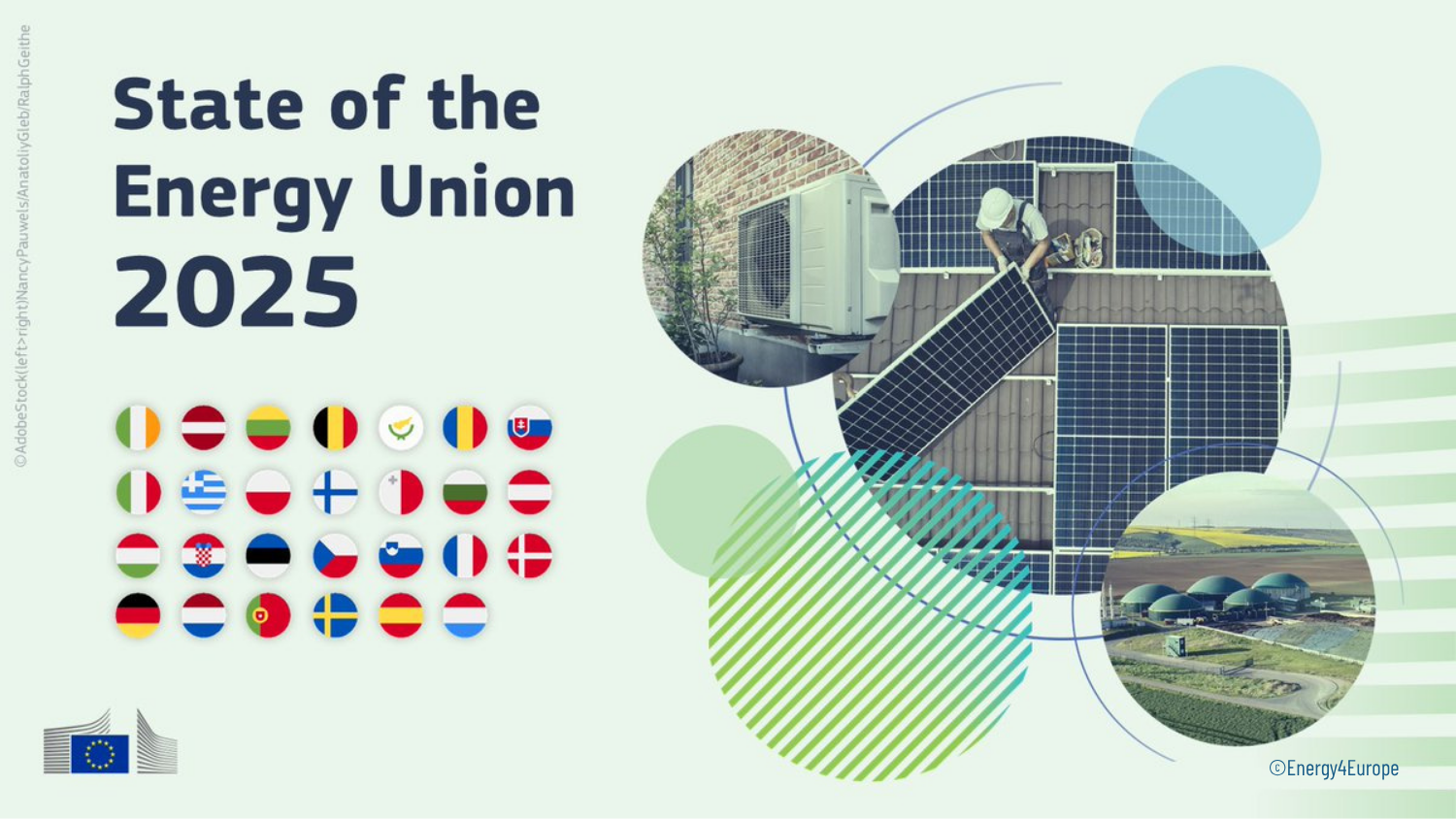
The European Commission’s State of the Energy Union 2025 report, published on 6 November, confirms that the EU is advancing towards a more secure, resilient and clean energy system, yet warns that stronger momentum is needed to meet the Union’s 2030 objectives. The report reiterates the strategic need to deliver an Energy Union capable of providing clean, affordable and domestically produced energy, particularly in an increasingly complex geopolitical environment.
The review highlights continued progress in implementing the Affordable Energy Action Plan, with measures to reduce energy costs, modernise grids and expand interconnections advancing across the Union. Despite this, fossil fuels still accounted for around 70% of EU energy consumption in 2023, most of which was imported. Renewables continue to expand rapidly, now generating the majority of electricity in the EU and contributing to lower emissions, reduced import dependency and improved air quality.
The accompanying Progress Report on Competitiveness underscores that the EU remains a global leader in public R&I investment for clean technologies. However, the Commission stresses that greater private-sector engagement is needed to consolidate Europe’s industrial and technological position. Instruments such as the European Competitiveness Fund, Horizon Europe and the European Investment Bank’s TechEU programme — expected to mobilise €250 billion by 2027 — are central to strengthening innovation capacity and securing resilient supply chains.
Drawing on updated National Energy and Climate Plans and the latest emissions projections submitted by Member States, the report notes that the EU is still progressing towards its 2030 targets of reducing net greenhouse gas emissions by at least 55% compared to 1990 and achieving a minimum 42.5% share of renewables in the overall energy mix. Nonetheless, the Commission emphasises that reaching these objectives will require faster deployment of clean technologies and reinforced efforts on energy efficiency, particularly in buildings, heating and cooling, and product standards. Policies such as the Clean Industrial Deal and the Competitiveness Compass will be central to maintaining momentum.
Looking ahead, the report calls for the EU to evolve into a genuine “electro-continent”, relying primarily on domestically generated clean electricity. Delivering large-scale electrification will require electricity’s share in final energy consumption to rise from today’s 23% to around 50% by 2040, supported by substantial investment in grids, storage, flexibility and cross-border infrastructure. Commissioner for Energy and Housing Dan Jørgensen has summarised the key message from the report by saying that while Europe is reducing its dependence on imported fossil fuels and increasing the share of renewables, progress must accelerate through faster deployment, stronger infrastructure investment and sustained affordability for households and businesses. The report ultimately underscores that maintaining EU competitiveness and resilience hinges on sustained and coordinated action across the Energy Union.